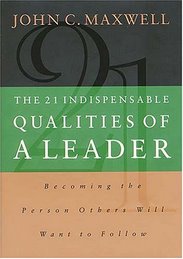Readers, I have now created a new blogging and website for me, please follow my blogs on that.
http://thoughtsbysweta.com/
Hope you continue reading it and enjoy my articles as much as I enjoy writing it.
Sorry for any inconvenience
Thank you for reading, I appreciate it.
Sweta
Thursday, March 25, 2010
NEW BLOGGING SITE
Monday, March 22, 2010
Benefits of Happiness Coaching
Coaching is an excellent way to attain a certain work behavior that will improve leadership, employee accountability, teamwork, sales, communication, goal setting, strategic planning and more. Business coaching is very common type of coaching. It provides feedback and occasionally advice to individual or group to help them recognize ways in which they can improve the effectiveness of their business.
"Happiness Coaching" has recently become the most popular form of business coaching. Employers hire trainers who draw on psychological research to inspire workers to take a more positive attitude—or at least a neutral one." Research shows that "Happier people miss work less often and receive more positive evaluations from bosses."
As per the article in wall street journal, Srikumar Rao, an emeritus professor at Long Island University whose training has earned him the nickname, “the happiness guru,” teaches people to stop jumping to conclusions and labeling everything that happens to them either a “bad thing” or a “good thing.” If your job is changed in a corporate reorganization, instead of concluding that’s a bad thing, tell yourself it could be good or bad in the long run, and there is no way to know right away. Keeping a neutral attitude lightens stress, says Dr. Rao.
Happiness Coaching is a feel good factor medicine, if you are happy you will always be in a good mood. As a result you will not only have higher productivity but also your company will have higher profit and better customer-satisfaction ratings.
A study done by Mayo Clinic shows that happiness leads to healthier and longer life. Happiness coaching helps people endure pain better than people with traditional style of coaching.
Happiness coaching leads to people having less depression, less suicide, and less paranoia , as well as greater self control, coping skills and enhances decision making ability.
Friday, March 19, 2010
Mentors-Backbone to your success
Every successful person such as Bill Gates, Warren Buffet and Indra Nooyi has one thing in common; a Mentor. During tough times each of them respectively have confine and learn from Warren Buffet, Benjamin Graham and Roger Enrico. Mentors are a backbone to one's professional and sometime personal success. They are not only your eyes and ears in the management but also they are your true critiques. Mentor is someone who is more experienced than you. Someone you can look up to and want to be that person one day.
What are Mentors?
1) Coach and a guide- They offer valuable insights by sharing their experience and by providing examples/options. I have had few mentors in my life and all of them play a very different role in shaping my career and personal life. Having mentors in my life gives me peace of mind by knowing that I have someone on my side to guide that is knowledgeable
2) Energizer bunnies- They encourage you to go beyond your comfort zone and keep you motivated during tough times.
3) Help reduce mistakes- They have already made all the mistakes for you so you don't have to do it all over again. One of my mentors told me that, "Failure is only possible if you decide to figure out everything on your own."
4) Critique- They not only help you enhance your strength but also help you focus and eliminate your weakness. Mentors provide honest and precise feedback which helps you to be successful.
The value of a good mentor is immeasurable you learn the tricks of the trade as well as become connected to those who know and possess the ability to hire in your future career path.
If you don't have a mentor get one; start with someone in your own department may be you bosses boss or someone in your family.
Thursday, March 18, 2010
Series3- Power of Good Communication
One of my mentor told me "Communication is a profound part of our life, and it is an art, one that often astounds us with its many intricate, complex and complicated ways of expression." By putting good communication skills into use, you can communicate and influence at every level in your business, workplace, social events from support staff to senior executives to friends.
The power of good communication helps you connect right away with the person you are talking to.
Good communication helps to find common ground and make the the conversation a two-way channel. Effective communication helps people to open-up and be authentic. Communication is not only verbal, a big piece includes body language. A simple smile can go a long way as it shows that you are interested in the topic and has a stronger impact on the listener.
Communication is a powerful conduit and tool that conquers and divides, dependent upon which game you play and how you play it.
3-Magic Rule for Communication- Listen, speak honestly, and be passionate.
Tuesday, March 16, 2010
Importance and Steps for Effective Feedback
In the last few weeks, I have interviewed few accomplished leaders in their field.They shared their success, challenges and work-life balance philosophy. One thing that was key to their success and personal growth was "Feedback" throughout their professional career.
Feedback is an essential part of keeping a company or organization running efficiently, as it is one of the ways management and its employees communicate. Providing feedback is an important aspect of working with other people, and helping your team progress.
There are many ways to provide constructive feedback such as Sandwich technique, 3-1 rule technique, 360-degree technique, etc. All these techniques are great however the key to effective feedback is the manner and approach you use to deliver feedback. Your feedback can make a difference to people if you can avoid a defensive response.
Steps for Effective Feedback:
2) Praise should be also be public, and a reprimand should be private.
3) Effective feedback is well timed. Whether the feedback is positive or constructive provide the information as closely tied to the event as possible. Give regular and timely feedback and don't wait till things build up or yearly review.
4) Don't be fake about what you think about an employee's performance, but don't be unprofessional and rude about it. Base feedback on actual results or observed behavior and not on an opinion or assumption.
5) Focus feedback on the benefits to the learner. Share ideas, information and explore solutions on how performance can be improved rather than simply giving advice or solutions to the learner.
6) Effective feedback involves what or how something was done, not why. Asking why is asking people about their motivation and that provokes defensiveness.
7) Ensure that feedback results in agreed actions by learner and record feedback as appropriate
Wednesday, March 10, 2010
Delegation- The new Leadership Style
Monday, March 08, 2010
Pick Your Battles-It is the Mantra for people who don't want Battles :)
This blog is for people from every walk of life as it talks about ways to deal with the most common output of human interaction-"CONFLICT."
How many of us have conflicts atleast once a week? I do!!
Conflicts are not always negative, they have a positive twist to it too. Conflict is the connection between change and growth!
However most of the times the conflicts are negative and argumentative. Choosing your battles wisely is a much better way of life than battling out every disagreement.You needs to "Pick your battles" right so you don't wear yourself.If you pick your battles well, you can neutralize problems along the way as you address the most important issues first. Not only will picking your battles lead to a more peaceful existence, but it's also likely to strengthen your interpersonal relationships.
I recently read a book by Dr. Richard Carlson called Don't Sweat the Small Stuff..and It's All Small Stuff." According to the book "Often we allow ourselves to get all worked up about things that, upon closer examination, aren't really that big a deal. We focus on little problems and concerns and blow them way out of proportion."
To be effective at "Picking your Battles" follow the following guidlines:
1) Let the small stuff go- Choose other ways of conveying your dissatisfaction with small issues other than fighting or long drawn-out discussions that lead nowhere.
2) Deal with issues as they arise- Dealing with problems immediately will prevent them from becoming huge issues in the future. This will help you effectively and politely express your feelings and concerns
3) Interact with people who are different- It helps you broaden your perspective and be less judgmental.
4) Don't take things personally- Specially in a professional environment don't take things personally. It is always effective to keep your emotions out when your are in conflict or discussion controversial subjects.
5) Treat others as you would like them to treat you- This is a common saying and we all know what it means, however most of us ignore this when there is a conflict or resistance.
6) Don't think you are God: During a conflict one always things they know it all and have a mindset that the other person needs to serve them. This only flares the conflict as the opposite side feels demeaning. Be humble and think of helping others, this will eventually limit the number of resistance you may face.
People who are successful are not always part of winning team but they know how to get along!!!
Thursday, March 04, 2010
7 Habits of highly effective people by Dr. Stephen Covey
I was recently reading "The 7 Habits of Highly Effective People" by Dr. Stephen Covey, who became one of the foremost leadership development trainers in the world.
These "habits" are said to be the mantra for personal success. So I have summarized these "7 Habits" (also added my thoughts) as it would be beneficial for the readers in their personal success.
1) Be proactive: You are the master of your own destiny and life. We need to make the initiative and be responsible for things to happen.
2) Begin with the end in sight: Look at the big picture and have a vision around it. How do you want to be remembered in the world when you leave, is a key question. One should balance the 4 factors:-Security, Guidance, Wisdom and Power effectively in their lives. It's like the karma chakra even if one quadrant is off your life will be unbalanced.
3)Put first things first: Effective management is putting first things first, and you accomplish it in parts day-in and day-out. As Dr.Convey said "Successful person has the habit of doing things failures don't like to do."
4)Think win/win: We are know what this is "Collaboration" in other words. Also strive for a negotiation that both parties can benefit from. This shows mature level of human interaction skills.
5) Seek first to understand, then to be understood: This habit goes hand in hand with the ability to be a good listener. Don't leap to an answer before completely understanding the situation or discussion. To be a successful person ones needs to not only be an attentive listener but also an emphatic listener.
6) Synergize: Lance Armstrong cannot win "Tour de France" just by himself, he needs his team. The same way people united together can create something greater than any single individual. The successful people know how to empower and synergize their team behind a common cause.
7) Sharpen the saw: Last but not the least is to continuously challenge and renew yourself both mentally and spiritually.
Wednesday, March 03, 2010
American Heart Association - Heart Walk in New York City Sign-Up
Readers today my blog is completely different however the cause is every close to my heart. I request all my readers in New York City and Tr-state area if possible register and join me in the heart walk to fight Cardio Vascular Diseases (CVD) with American Heart Association.
I lost my grandfather due to stroke, my grandmother had cardio vascular disease(CVD) and recently my father went through a major CV surgery.This cause is extremely personal to me, and I sure you know someone you
has also gone through this deadly disease.
Lets as a team make a small difference for this big cause with AHA.Do it for mankind!
http://heartwalk.kintera.org/faf/search/searchTeamPart.asp?ievent=322768&lis=1&kntae322768=268304A2FDC24933BC7F1D13D883222C&team=3674776&tlteam=3550924
Tuesday, March 02, 2010
Series2- Key elements of Good Communication
I was reading a blog this morning by John Maxwell on "the power of good communication" and found it very interesting. I thought this would be a good seg way for the next Series 2 on communication for the readers.
So before I write about the power of good communication I thought first knowing the elements of good communication is critical.
Key elements of Good Communication
- Professionalism — This is a key in communication. Most of us after a few meeting become quiet informal in our approach during business and client meetings. While some clients don’t mind an informal approach, others may be offended. As we are in a global environment we need to be more professional as some business representatives from culture are not as friendly as others; Example- Japan has a very formal culture and professionalism is of utmost importance to them, how you greet them, how you hold their business card, etc.
- Enthusiasm — This makes the client, friend of business person feel you love what you go or talking about. You are very interested in this conversation and enjoying their company. Enthusiasm automatically improves your body language making your communication more effective. Example: Some phrases to convey excitement include: “I’m really excited about this project,” “I look forward to working with you,” “I can’t wait to begin this project.”
- Integrity/Responsiveness — The relationship is based on trust. To maintain a good relationship/communication with someone your communication to them should be honest and reliable. Your communication should be as accurate as possible. Your honesty and commitment defines the relationship. If you are accurate in your commitment it goes long ways and is a crucial element to good communication. Don't provide false promises or inaccurate dates just to look good at that given moment. As much as accurate information is important being responsive is even more critical. You may spend hours explaining things that may be irrelevant or does not address or answer someone's original concern or question.
- Respect — Your communications should convey a sense of respect for other person. Avoid language that belittles someone even if you think that their ideas are not valid. Instead, focus on your experience and how it benefits them. Also, stay away from angry outbursts.
- Organization — Your communication should be well-organized and well thought-out. There should usually be an introduction, a few main points, and a conclusion. You should also format your writing so that someone can easily scan your message and see the main ideas. Depending on how long your response is, you may also want to summarize it for your clients.
- Consistency/Clarity — Your words should be consistent within a single message as well as across multiple messages. Don’t confuse someone. The opposite person should always understand exactly what you are communicating.. Whenever possible, avoid rambling and be concise.
If you want to read John Maxwell's blog on "The power of good communication" here is the link
http://johnmaxwellonleadership.com/2010/03/01/the-power-of-good-communication/?utm_source=feedburner&utm_medium=email&utm_campaign=Feed%3A+JohnMaxwellOnLeadership+%28John+Maxwell+on+Leadership%29
Enjoy!!






